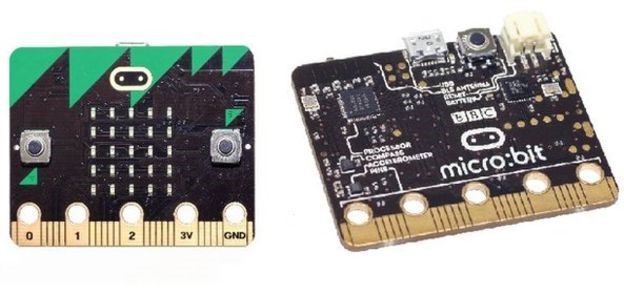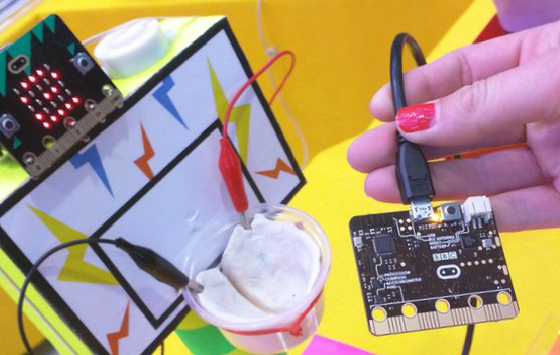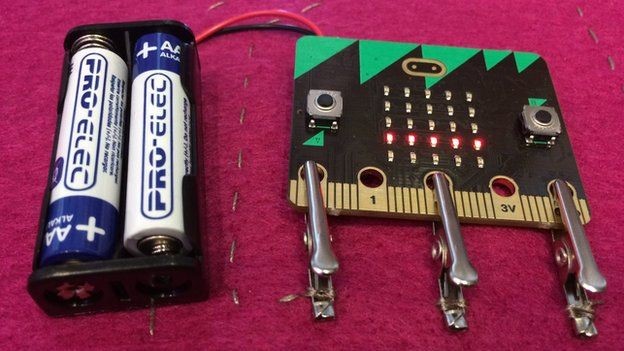
As computers become increasingly prevalent in children’s elementary curriculum, students are finding themselves knowing how to use computers, but unable to program them. Seeking to teach 7th graders what MIT Professor Mitchel Resnick (the developer of the Scratch coding language for children) describes as a new form of literacy, the BBC has developed the Micro Bit, a pocket-sized computer à la way of the Raspberry Pi, and it’s giving it away for free to one million 7th graders.
Micro Bit — named after its 1981 predecessor the BBC Micro — seeks to impart the latest generation of young people with the ability to make their own electronic DIY projects. As such, the Micro Bit is equipped with a bevy of built-in sensors including a magnetometer, an accelerometer, two clickable buttons, and a Bluetooth chip.

In addition, students can program the 25 built-in LEDs to alter their flashing pattern, a staple activity of beginner dev boards. Code is written and tested on a specific website designed to be child-friendly, before it is uploaded onto the Micro Bit using a USB cable or wireless Bluetooth connection. An early prototype even included a watch-battery slot to minimize the Micro Bit’s footprint, until a subsequent revision replace slot with a bulkier battery pack.

The Micro Bit can also be powered by USB
A spokesman said: “The initial prototype utilized a smaller battery, however in reviewing the design and examining the health and safety implications of using small batteries for a young audience, where siblings may be able to access the device, the partnership took the decision to re-engineer this element.
For more advanced use, the 4 cm by 5 cm (1.6 in by 2 in) Micro Bit can be connected to the Raspberry Pi, Arduino, and Galileo using its input-output rings. “As the Micro Bit is able to connect to everything from mobile phones to plant pots and Raspberry Pis, this could be for the internet-of-things what the BBC Micro was to the British gaming industry.” Also, in much the same manner as the Pi, Micro Bit must be connected to television, monitor, or mobile device in order to function.
Source: BBC
Advertisement
Learn more about Electronic Products Magazine





